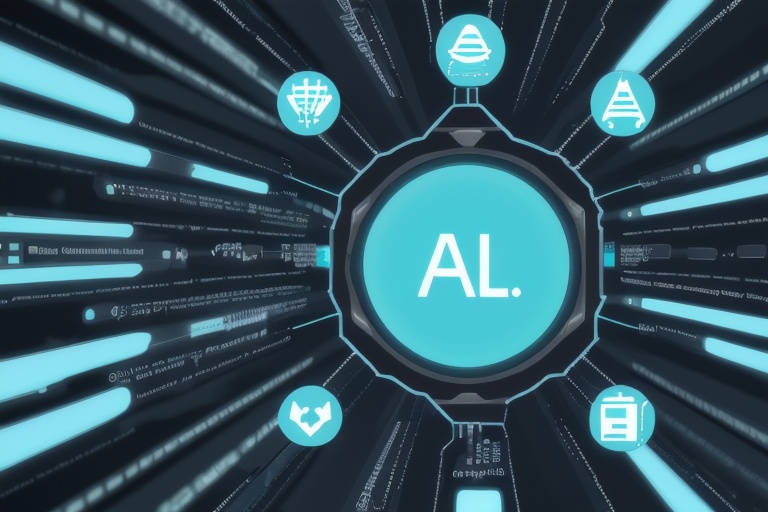The integration of artificial intelligence (AI) across various sectors has sparked a global conversation, emphasizing its monumental influence on automation, operational efficiency, and technological innovation. Nevertheless, every technological stride comes with its associated benefits and drawbacks. This discussion aims to navigate through both the promising advantages and the critical challenges of AI's role in contemporary society.
The integration of artificial intelligence (AI) across various sectors has sparked a global conversation, emphasizing its monumental influence on automation, operational efficiency, and technological innovation. Nevertheless, every technological stride comes with its associated benefits and drawbacks. This discussion aims to navigate through both the promising advantages and the critical challenges of AI's role in contemporary society.
The Necessity of Artificial Intelligence
Why do we need Artificial Intelligence? AI facilitates the design of intelligent machines that operate autonomously, without constant human oversight. These smart systems learn from colossal datasets, improving functionality and adapting to environmental shifts. As a consequence, AI systems play a pivotal role in various dimensions of human life. The world has witnessed considerable transformations with AI integrations from GPS navigation in apps like Google Maps to autonomous vehicles, online shopping recommendation algorithms, to sophisticated fraud detection systems. AI's reach into our daily existence is profound and ever-expanding.
The Advantages of AI
Error Reduction and Improved Accuracy
One of the most significant triumphs of AI is its capacity to diminish error margins and render precise outcomes. Unlike humans, whose performance can fluctuate due to numerous factors, AI holds the promise of consistent and accurate execution of tasks. Especially in scenarios that involve complex problem-solving or handling large volumes of data, AI systems frequently surpass human capabilities.
Automation of Monotonous Jobs
AI excels at performing monotonous, repetitive tasks—one of the primary benefits of AI systems. Human workers can experience fatigue and diminishing efficiency over time; however, AI-powered machines can work tirelessly, improving productivity and enabling businesses to meet the constant demands for their products.
Non-Stop Service Provision
The need for leisure and rest poses limitations on the continuous availability of human workers. AI stands as an irreplaceable asset in providing 24-hour services. From customer service chatbots that engage with countless customers simultaneously to various domains like e-commerce, healthcare, and education, AI offers seamless operations without sacrificing performance.
Unbiased and Prompt Decision-Making
Unconstrained by human emotions, AI systems make decisions based on logical, programmed algorithms. In critical situations where data-driven decisions are paramount, AI's cognitive computing abilities ensure that outcomes are devoid of irrational biases that humans might exhibit under stress or due to personal predispositions.
Revolutionizing Digital Assistance
AI-driven digital assistants have transformed workflows in myriad industries. In healthcare, for instance, digital assistants allow remote patient monitoring, providing timely intervention while alleviating the workload on healthcare providers. These intelligent systems also empower multiple sectors by automating routine tasks and providing actionable insights from large data sets.
The Challenges of AI
Substantial Development Costs
While AI systems offer numerous advantages, their development and deployment come at considerable financial costs. The immense investment required for research, continuous refinement, and maintenance may inhibit AI's broader adoption, especially among smaller entities with limited budgets.
Job Displacement Risks
The automation capacities of AI could lead to the displacement of jobs, especially those involving manual or repetitive tasks. Admittedly, AI also facilitates the creation of new job categories; nonetheless, transitional phases could engender employment disruptions as the workforce strives to adapt to changing technological landscapes.
The Creative Gap
Despite AI's proficiency in pattern recognition and data processing, creativity and intuition remain largely human domains. Artistic expression, innovative problem-solving, and nuanced creative thinking still evade the grasp of AI systems.
Dependency on Data Quality
The accuracy and integrity of data are fundamental to AI's effectiveness. Biased or flawed data sets generate suboptimal AI models, potentially producing unintended and even detrimental results. Thus, the continuous enhancement of AI technologies hinges on the availability of unbiased, high-quality data.
Inimitability of Human Intellect
While AI continues to advance in sophistication, it cannot replicate the full spectrum of human intelligence. Elements such as emotional nuances, empathy, and moral reasoning are distinctly human qualities that AI has yet to, and may never fully emulate.
Responsible AI Utilization
Acknowledging both the potential and the perils of AI is imperative for its ethical application. Its capacity for round-the-clock operation, consistent performance, and unerring precision can yield unprecedented productivity gains. Concurrently, the technology's limitations and societal impacts necessitate thoughtful and cautious deployment.
In forthcoming installments of this blog series, we shall delve deeper into AI's diverse applications, future prospects, and the essential debate surrounding its ethical considerations. The stage is set for readers to join a comprehensive exploration of AI's extensive landscape and its multifarious implications.
Information for this article was gathered from the following source.




